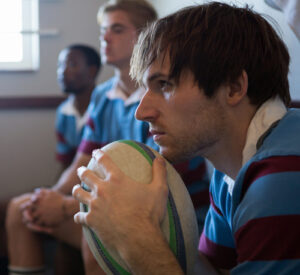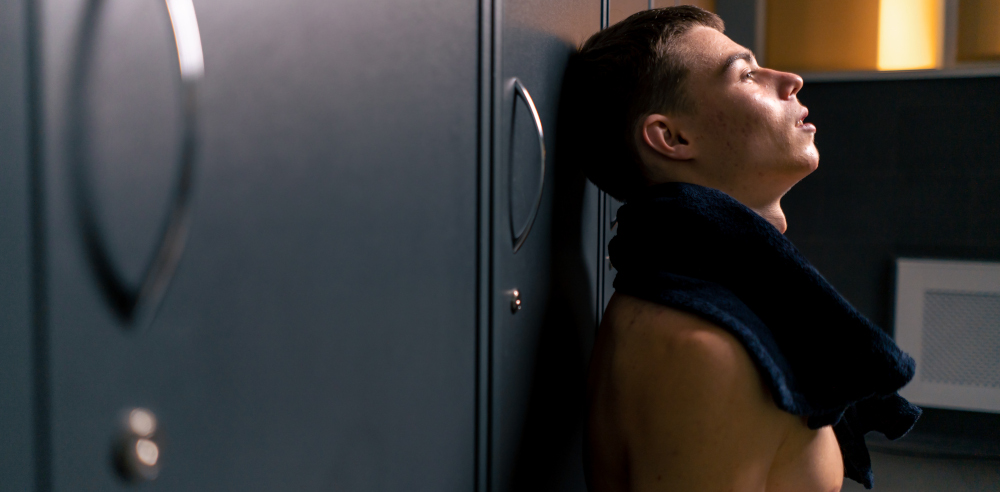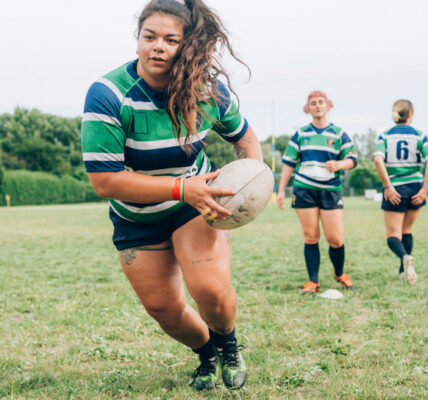There’s a stillness that settles the night before a rugby match. It’s not quite fear, and it’s not excitement either. It’s something in between. A muted intensity that hangs in the air like a storm that hasn’t decided if it’s coming or passing by. Most people don’t see this part. They see the matchday, the roaring crowd, the muscle, the noise. But the night before, when the jersey is folded neatly and the boots sit waiting by the door, that’s when the game begins in earnest.
For club players, especially those juggling real life with the weight of the badge, Friday night isn’t a wind-down. It’s a rehearsal. Not physical, but mental. Meals are eaten with more intent. A second helping is questioned. Water intake is measured in glasses, not instinct. There’s no heavy conversation. Even the TV stays low. In flats and township homes, in suburban kitchens and shared rentals, players sit with themselves, trying to hold their nerves like a full cup. It’s not the nerves of panic. It’s the nerves of responsibility. Of knowing that tomorrow you’ll be asked to show up in full.
In a modest home in Chatsworth, Jerome, a 29-year-old backline player for a local side in the KZN First Division, lays out his kit at around 9 p.m. His two boys have already gone to bed. His wife is washing up in the next room. The shirt is black with a fading number 12 on the back, but he still handles it like it’s brand new. There’s a rhythm to it. Shorts, socks, strapping, gumguard, energy gel. The same process, every match. He doesn’t talk much tonight. Just sips his rooibos, stares out the window, and occasionally flexes his ankle to test the joint. It’s been tender since the semi-final last month, but he’ll strap it again. The physio told him to rest, but that’s not an option. Not now. Not the night before.
Further inland, in Estcourt, a loose forward named Mbulelo checks his bag three times. He’s only starting because the regular No. 6 pulled out late with flu. It’s his first run in the senior squad, and he hasn’t told his father yet. He doesn’t want to jinx it. Instead, he replays the lineouts in his head, going through combinations called by the captain. In his room, next to a cracked mirror, a faded photo shows him as a ball boy at the same club almost ten years ago. He wonders if they’ll trust him to go the full eighty. He doesn’t sleep much that night. But he doesn’t toss either. Just lies there, legs still, eyes open, waiting.
Somewhere in Hillcrest, in a rented apartment near the shopping centre, a prop eats dinner alone. Microwave chicken and rice. No sauce. No nonsense. He doesn’t feel like talking. His girlfriend is away for work and the flat is too quiet. He queues up old match footage on his laptop, but doesn’t watch it all the way through. He’s not watching to learn anything new. Just to remind himself of who he is. Of what he’s still trying to prove. He leaves his phone on silent. Group chats are still buzzing, banter, injury updates, small talk, but he’ll respond in the morning. Tonight is not for noise.
This quiet isn’t unique to any level. It lives in school dormitories and elite hotels just the same. It doesn’t care if you’re playing in front of three thousand or thirty. It arrives all the same. Not to haunt, but to sharpen. To remind players that rugby is a game of presence. And that presence starts the night before. With stillness. With small sacrifices. With the kind of inner focus that doesn’t show up on stat sheets but often decides who lasts in the tackle.
 In townships and suburbs across the province, similar rituals unfold. Young players check their boots for loose studs. Some read scripture. Others listen to the same song on loop. Some pray. Some don’t. But nearly all of them feel the same quiet weight. It’s not fear of failure. It’s the honour of being counted. Of being named. Of being expected to carry something for your side. For your town. For your family. And it’s this expectation, not the opponent, that humbles you.
In townships and suburbs across the province, similar rituals unfold. Young players check their boots for loose studs. Some read scripture. Others listen to the same song on loop. Some pray. Some don’t. But nearly all of them feel the same quiet weight. It’s not fear of failure. It’s the honour of being counted. Of being named. Of being expected to carry something for your side. For your town. For your family. And it’s this expectation, not the opponent, that humbles you.
Late in the night, in a small room behind a spaza shop in Umlazi, a winger named Thabo can’t sleep. He knows he’s fast. Fast enough to cause trouble. But the team they’re facing tomorrow has two provincial trialists and a coach who doesn’t rate him. He’s been moved from 11 to 14, and he’s not sure what that means. He goes outside. The air is cold. A dog barks in the distance. He runs through plays in his head. Imagines the first ball he’ll catch. The first contact. He’s not scared. Just desperate for the whistle. Because once the match starts, the quiet will be gone. And he’ll know exactly what to do.
Elsewhere, an old player who now coaches still lays out his gear before a big game. He’s not running on anymore, but he’ll be at the ground before the players arrive. Setting cones. Checking kit. Saying the same words he once needed to hear. He remembers his own nights before matches. The nervous pacing. The sudden, irrational craving for chocolate. The way he could never get his strapping to sit right until it mattered. He smiles at the memory. Then sets his alarm for 5 a.m.
That’s what the night before a game is. Not drama. Not hype. But deep routine. A private kind of faith. Across the province, players from every level live it out in their own ways, some in silence, some in prayer, some in quiet conversation with their own doubts. They all know that tomorrow the scoreboard will say what it says. But tonight, they carry the part of the game that’s harder to explain. The anticipation. The weight. The small, invisible commitments.
It’s the part of the game no one talks about. The part with no crowd. No highlights. Just the hum of quiet preparation in homes where rugby still means something sacred. Where the game starts not at kickoff, but in the quietest hour of the night before.




